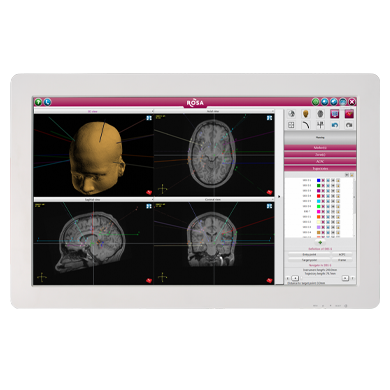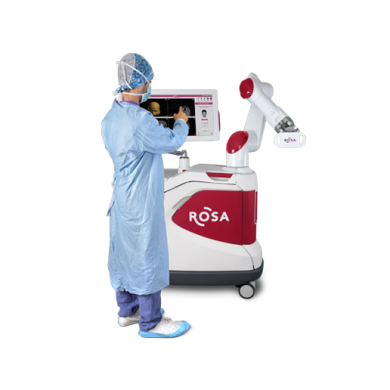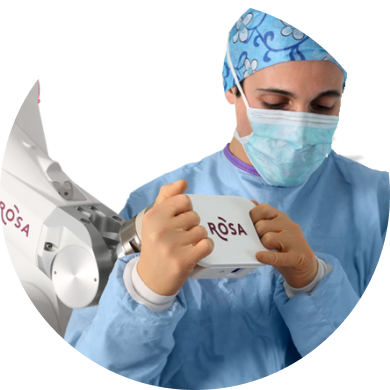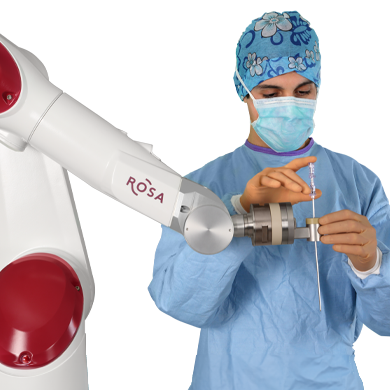SEEG is a diagnostic surgery that locates where epilepsy starts in the brain. SEEG can be used for patients with intractable epilepsy. This is a condition where seizures are not stopped by anti-seizure medicines.
Using ROSA One, thin electrodes are placed through small holes in the skull. The electrodes stay in place for several days and can detect when a seizure happens. The data from the electrodes helps your doctor determine which epilepsy treatment could be right for you. This means you will likely have a second surgery after your SEEG to treat your epilepsy.
SEEG is an alternative for placement of subdural grid electrodes. Subdural grid electrodes are not minimally invasive, and a piece of the skull has to be temporarily removed to place them on the brain. SEEG is minimally invasive, and only creates small holes in the skull the size of a pencil.







